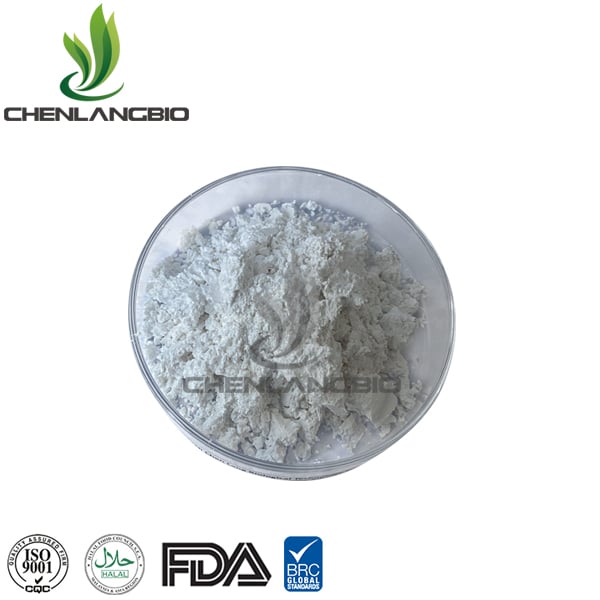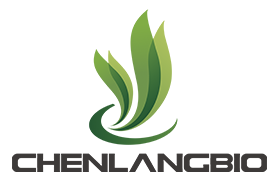
Phytosphingosine In Skin Care
XI AN CHEN LANG BIO TECH CO., LTD has been producing plant extracts, functional cosmetic raw materials, and nutritional supplements for more than 15 years. High-quality products, safe and stable supply have enabled us to become a global raw material supplier.
What is phytosphingosine HCL
Phytosphingosine in skin care INCI name phytosphingosine. Phytosphingosine powder, also known as phytoceramide or plant ceramide, is a type of ceramide derivative that is extracted from plants. Ceramides are a class of lipids (fats) that are found in the outer layer of skin cells, known as the stratum corneum. They play a crucial role in maintaining the skin's barrier function, keeping moisture in and irritants out.
This powder is typically derived from plants such as rice, wheat, or soybeans and is often used in cosmetic formulations as an emulsifier, stabilizer, or skin-conditioning agent. It can be found in products like creams, lotions, serums, and masks designed to improve skin health and appearance.
It is a popular ingredient in skincare products due to its ability to improve skin moisture retention, elasticity, and firmness. It is also believed to have anti-aging and anti-inflammatory properties that can help reduce the appearance of wrinkles, fine lines, and other signs of aging.
Brief Introduction of Phytosphingosine
| Name |
Phytosphingosine |
| CAS | 554-62-1 |
| Specifications | 98%+ |
| Molecular Formula |
C18H39NO3 |
| Molecular Weight | 317.5 |
| Appearance |
White powder |
| Package |
1Kg/Aluminum foil bag, 25Kg/Paper drum |
| Product Preservation |
Store in a cool, dry place away from light and high temperatures |
| Shelf Life |
24 Months |
Please send inquiry to Email: extract@chenlangbio.com to get phytosphingosine COA, MSDS, Test data and so on.
Is Phytosphingosine Good For Your Skin
Role in the skin’s self-defense mechanism
Source of lipids that make up the water-locking barrier of the skin's stratum corneum;
Powerful antibacterial barrier, especially against Propionibacterium acnes and Staphylococcus aureus;
Natural inflammation regulator, inhibits various inflammatory factors (interleukin 1-α and PKC: an inflammatory precursor).
Related Data Phytosphingosine
Anti-inflammatory and bactericidal, it can remove acne while reducing the redness associated with acne. Hypoallergenic: it works on sensitive skin without causing irritation.
Promptly reduce erythema and redness caused by UV rays.
It can be used as an after-sun repair product, to strengthen and supplement acne care products, and to slow down redness and other skin stress reactions.
Phytosphingosine Skin Benefits
Anti-inflammatory
Pavicic et al. confirmed through experiments that phytosphingosine (0.2%) can significantly reduce the release of IL-1α after cells are irradiated by UVB.
In addition, phytosphingosine can also inhibit PKC activity and inhibit the expression of IL-8 and CXCL2. In other words, phytosphingosine can reduce the inflammation and redness of the skin after being exposed to the sun.
Antibacterial
Low concentrations of phytosphingosine have inhibitory effects on both G+ and G- bacteria and even fungi.
Phytosphingosine in skin care regulates keratinocyte differentiation.
Anti-acne
Phytosphingosine is effective in reducing inflammatory reactions, correcting hyperkeratosis, and inhibiting Propionibacterium acnes. Phytosphingosine is effective in reducing inflammatory reactions, correcting hyperkeratosis, and inhibiting Propionibacterium acnes. Pavicic et al. found that PS combined with BPO has a more obvious therapeutic effect than BPO alone.
Phytosphingosine Uses
Recipe Guide
Advise dosage: 0.05-0.2% (5% solution: 1-4%)
Phytosphingosine solubility: Heat to 90°C in oil; solubility in fatty alcohol is about 1%
PH: 3-9
Heat stability: Stable
Electrolyte stability: Stable
Incompatibility: Phytosphingosine HCL is incompatible with thickeners such as carbo/xanthan gum.
Phytosphingosine Safety and Stable
Phytosphingosine is generally considered safe and stable, but its safety and stability may depend on specific conditions and applications. Here are some points to consider:
Safety: Phytosphingosine is a naturally occurring lipid found in plants, and it is generally considered safe for use in cosmetics and personal care products. However, as with any ingredient, there is always a possibility of allergic reactions or skin irritation, especially for individuals with sensitive skin. Therefore, it's important to perform a patch test before using any product containing phytosphingosine. Additionally, if you have any concerns about the safety of phytosphingosine or any other ingredient, it's always best to consult with a dermatologist or skincare professional.
Stability: Phytosphingosine powder is a relatively stable compound under normal storage conditions. However, its stability may be affected by factors such as temperature, light, and moisture. Therefore, it's important to store phytosphingosine-containing products in a cool, dry, and dark place to maintain their stability and effectiveness. Additionally, the stability of phytosphingosine may also be affected by its interaction with other ingredients in a product, so it's important to follow the manufacturer's recommendations for usage and storage.
Overall, phytosphingosine in skin care is generally considered safe and stable for use in cosmetics and personal care products. However, it's always important to be mindful of individual skin type and condition, follow manufacturer's recommendations, and consult with a dermatologist or skincare professional if needed.



